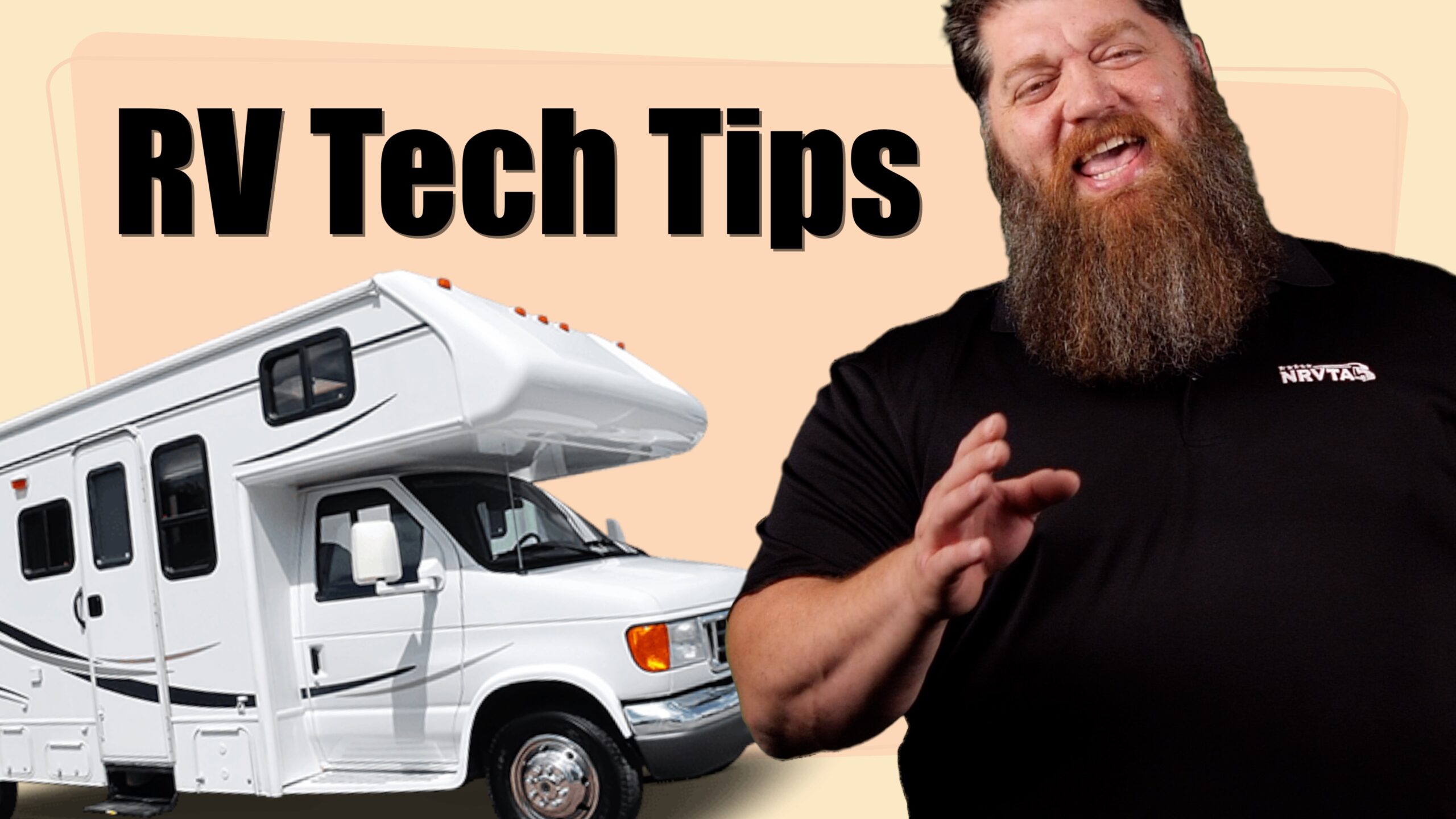Get your RV Technician Certification in as little as 5 weeks!

If you don’t have a motorhome, then you’ll need to tow your fifth wheel or travel trailer with a truck. But, how much weight can you really tow with it?
When you try to research that question online, you’ll probably get many different answers.
“We see that all the time,” said Todd Henson, lead technical instructor at the National RV Training Academy. “It is not as simple as asking, ‘I have this type of truck, so how much can it tow?’ You actually have to calculate that number by yourself.”
There are many different false facts and figures online, which is why the answer is often convoluted, he added. So, to calculate the accurate answer, you’ll need to follow a pretty specific formula to eliminate any guesswork.
The first step requires you to find the truck’s gross vehicle weight (GVW). You get that by loading the truck with your spouse, children, pets and other cargo you’ll likely take with you in the vehicle, like coolers, toys, swim gear, fishing equipment, etc.
Then, with the truck fully loaded with fuel, people, pets and gear, drive to a certified scale. Many truck stops have them. The scale will provide the gross vehicle weight for the truck, including the weight of everything over the front and rear axles.
Second, you will need the gross vehicle weight rating (GVWR). That number will be printed by the manufacturer onto a sticker located on the door jamb of the driver’s door.
Then, simply subtract the GVW from the GVWR. If you get a negative number, that means you are already over the gross vehicle weight rating and your truck is too small or you are carrying too much gear or people, said Todd.
If GVWR – GVW = a positive number, then you’re okay.
Next, go online or check the owner’s manual to find the gross combined vehicle weight rating (GCVWR). That figure shows the maximum amount your truck can handle when fully loaded with occupants, fuel and gear while towing an RV.
Calculate the tongue weight
Even though an RV has its own axles, you’re still putting weight on the truck’s rear axle when towing something. The amount of weight being added to the truck is called the “tongue weight” (TW) and it is the amount of pressure being applied either to the bumper by a travel trailer or to the truck bed by a fifth wheel.
You can determine that number with this simple formula:
- With a bumper-pull travel trailer, it will be 10% of the GVW of the RV.
- For a fifth wheel, you will put 25% of the RV’s GVW onto the gooseneck hitch.
For example, if your travel trailer is 8,000 pounds, then you’ll add 800 pounds in tongue weigh to the truck. But, if the fifth wheel is 10,000 pounds, then you will be adding about 2,500 pounds on the truck’s rear axle.
Calculate the RV weight
Just like you did to calculate the truck’s gross vehicle weight, you will do the same with the RV. Load it up with everything you’ll take with you, including food, a full fresh water tank, clothes, and whatever you put into closets and storage compartments.
Don’t worry about the gray and black tanks because they will likely be empty before you leave home and emptied again before leaving the campground. If you are boondocking, the fresh water tank will be lower after camping and replaced with weight of the gray and black tanks.
By having that fully-loaded RV weighed, too, it will give you a very accurate tongue weight and will help calculate the super-important combined gross vehicle weight (CGVW).
Are you safely towing?
With all the numbers carefully calculated, now you can determine if you are towing safely by taking the CGVWR and subtracting the GVW of the tow vehicle, RV and tongue weight.
If GCVWR – GVW of tow vehicle – GVW of the RV – TW = a positive number, then you’re good to go.
If it is a negative number, that is the amount of gear you will need to eliminate from the RV and truck to tow safely, said Todd.
“Or, you need to get a different truck. If you can’t afford another truck at the moment, consider putting some passengers and gear into another vehicle and driving both to the campground,” he added. “That way you reduce the risk of a towing-related accident.”
If you want to learn how to fix the majority of problems you’ll encounter on your rig, check out the programs offered by the National RV Training Academy. You can even find information about becoming a certified RV technician or inspector by visiting www.nrvta.com.
Get Registered Today!
Talk to a student advisor to learn more!